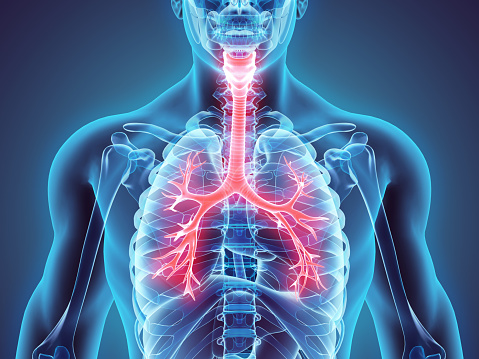What is Chest Health?
Chest health refers to the overall condition of the chest region, which includes the heart, lungs, and surrounding muscles and bones. It encompasses the physical, psychological, and functional aspects of the chest.
The following are some important aspects of chest health:
- Cardiovascular Health: Good chest health requires a healthy heart and circulatory system. Regular exercise, a healthy diet, and medical care are important for maintaining cardiovascular health.
- Lung Health: The lungs are an essential component of the chest and play a vital role in breathing. Avoiding smoking, pollution, and other environmental factors that can harm lung health is important.
- Muscular and Skeletal Health: The chest contains various muscles, bones, and joints that are essential for posture, movement, and support. Regular exercise, stretching, and proper posture can help maintain good muscular and skeletal health.
- Psychological Health: Chest health can also impact mental health. Chronic chest pain or respiratory conditions can cause anxiety, depression, and social isolation.
- Medical Care: Seeking medical care for any chest pain, shortness of breath, or other symptoms is important for maintaining chest health. Regular health screenings and check-ups can help identify any potential issues early on.
Overall, maintaining good chest health requires a combination of healthy lifestyle habits, medical care, and preventive measures. Regular exercise, a healthy diet, avoiding smoking and other harmful environmental factors, and seeking medical attention for any chest-related issues are essential for maintaining good chest health.
Define Chest Health.
Chest health refers to the overall well-being of the chest area, which includes the heart, lungs, and surrounding muscles and bones. It encompasses various aspects of physical, functional, and psychological health. Good chest health involves maintaining proper cardiovascular and respiratory function, muscular and skeletal health, and psychological well-being. It also involves seeking medical care for any chest-related symptoms or conditions and adopting healthy lifestyle habits, such as regular exercise, a balanced diet, and avoiding harmful environmental factors. Regular health screenings and check-ups can help identify any potential issues early on, which can aid in maintaining good chest health.
How to make our Chest Strong?
There are several ways to make your chest strong, some of which include:
- Resistance training exercises: Resistance training exercises like push-ups, chest presses, chest flies, and dips can help to build chest muscles.
- Cardiovascular exercises: Activities like running, swimming, or cycling can help to improve overall fitness and cardiovascular health, which in turn can help to strengthen the chest muscles.
- Proper nutrition: Consuming a balanced diet that includes lean protein, healthy fats, and complex carbohydrates can help to support muscle growth and repair.
- Rest and recovery: Adequate rest and recovery time between workouts is important for muscle growth and preventing injury.
- Proper form and technique: Ensuring that you are using proper form and technique during exercises can help to target the chest muscles effectively and avoid injury.
- Variation in exercises: Varying your exercises can help to target different muscles in the chest and prevent boredom.
Remember to consult a healthcare professional before starting any new exercise program, especially if you have pre-existing medical conditions or injuries.



